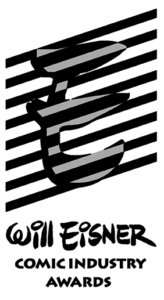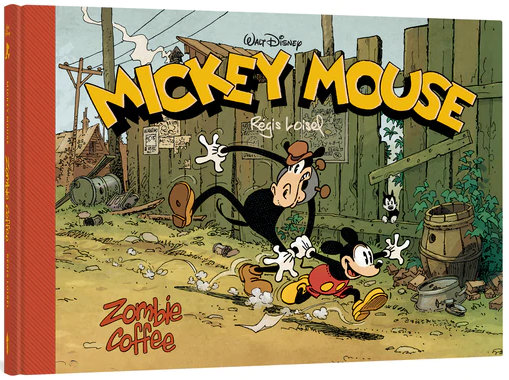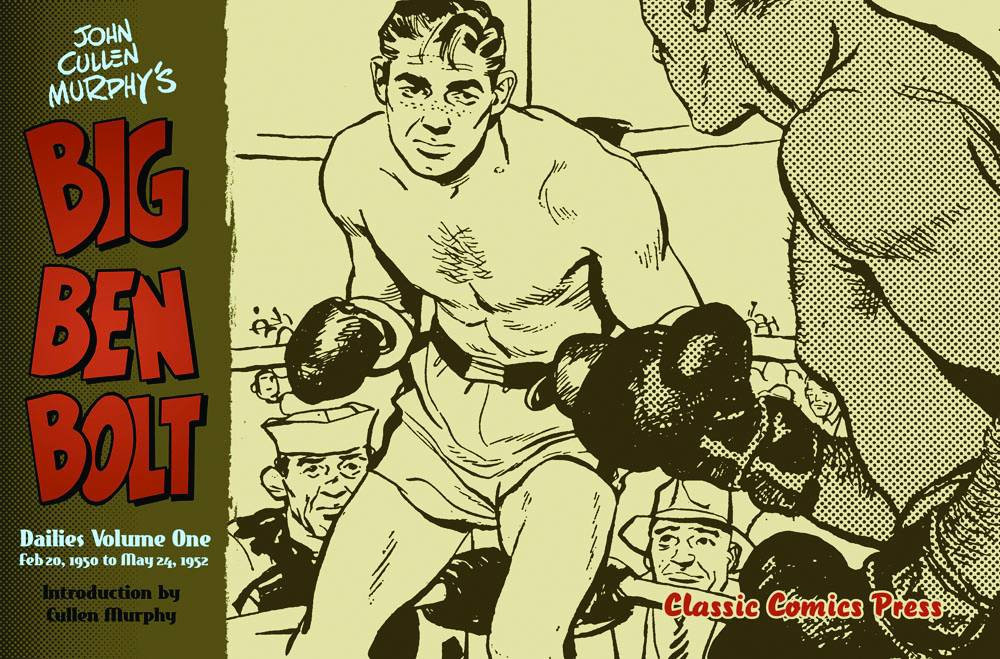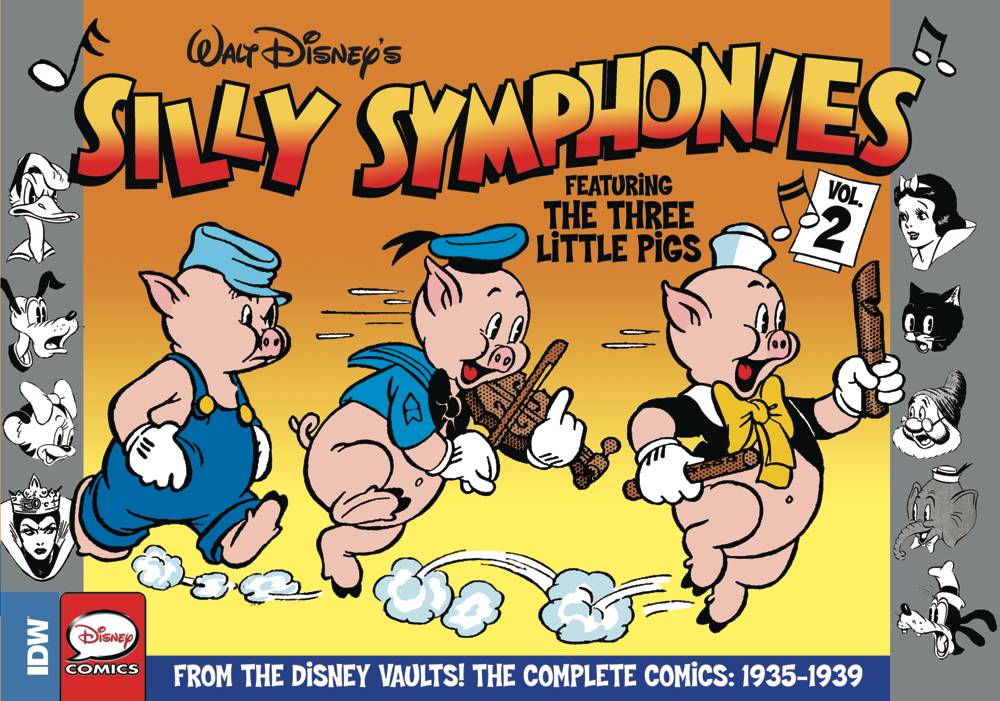
The 2019 Eisner Awards took place over the weekend during the San Diego Comic-Con (SDCC). This is an industry award with no public voting, only open to industry professionals. And it works under the flawed principle that voters have read all the material in a category they are voting on.
Here are the criteria provided under Who is eligible to vote?
The following working comics industry professionals are eligible to vote in the Eisner Awards:
- Comic book/graphic novel/webcomic creators (writers, artists, cartoonists, pencillers, inkers, letterers, colorists)
- All nominees in any category
- Comic book/graphic novel publishers and editors
- Comics historians and educators
- Graphic novel librarians
- Owners and managers of comic book specialty retail stores
That’s an important criterion as it severely limits who can vote. Each category has a list of nominations for voters to choose from. Voters can choose what categories they want to vote on, thereby providing an opportunity for voters to only cast a vote on a category where they have read all the nominated material. The Eisner Awards do their best, but it’s a flaw in the voter that can’t be corrected.
These awards cover a wide area of the industry, but I focus on three specific categories: Best Archival Collection/Project—Strips, Best Archival Collection/Project—Comic Books, and Best Publication Design. These are also the most expensive books in the nominations.
Based on my areas of interest and reading habits these three categories fall right into my wheelhouse. At times I’m also interested in Best U.S. Edition of International Material, Best Graphic Album—New and Best Graphic Album—Reprint, but not always. And I say this because I didn’t get a chance to read everything in those categories, and normally don’t.
I never gave Eisner voting much thought until I was listening to a podcast and heard them go over these categories and pick winners based on the title or creator or publisher, never mentioning having read any. Their lack of knowledge about these books was concerning. They didn’t know why A Contract with God was getting another edition, not knowing what a Curator’s Collection was. Same with Terry Moore’s Gallery Edition.
This got the wheels turning and I wondered how common this is, especially for categories filled with expensive niche books.
Before going any further, I want to stress that I’m not bashing or taking away from the 2019 winners. Every book in these three categories is exceptional and deserving of an Eisner win. My focus here is on voting and the responsibility in that of forming an educated decision.
Let’s take a look at those Best Archival Collection/Project—Strips nominees.
- Pogo, vol. 5: Out of This World At Home, by Walt Kelly, edited by Mark Evanier and Eric Reynolds (Fantagraphics)
- Sky Masters of the Space Force: The Complete Sunday Strips in Color (1959–1960), by Jack Kirby, Wally Wood et al., edited by Ferran Delgado (Amigo Comics)
- Star Wars: Classic Newspaper Strips, vol. 3, by Archie Goodwin and Al Williamson, edited by Dean Mullaney (Library of American Comics/IDW)
- The Temple of Silence: Forgotten Words and Worlds of Herbert Crowley, by Justin Duerr (Beehive Books
- Thimble Theatre and the Pre-Popeye Comics of E. C. Segar, edited by Peter Maresca (Sunday Press)
I own four of these and spent a good deal of time with the fifth before deciding not to buy. Based on that I feel I could provide a reasonable level of confidence in voting in this category. These five vary from $35 to $120 USD.
But if you didn’t read any of these, and deciding your vote in this category by looking at the titles for 30 seconds on the voting site, which do you think would get the vote? If you guessed Star Wars Vol 3, as being the only mainstream name in that list, you would have picked the winner.
Doing the same for Best Archival Collection/Project—Comic Books.
- Action Comics: 80 Years of Superman Deluxe Edition, edited by Paul Levitz (DC)
- Bill Sienkiewicz’s Mutants and Moon Knights… And Assassins… Artifact Edition, edited by Scott Dunbier (IDW)
- Dirty Plotte: The Complete Julie Doucet (Drawn & Quarterly)
- Madman Quarter Century Shindig, by Mike Allred, edited by Chris Ryall (IDW)
- Terry Moore’s Strangers in Paradise Gallery Edition, edited by Bob Chapman, Joseph Melchior, and Terry Moore (Abstract Studio/Graphitti Designs)
- Will Eisner’s A Contract with God: Curator’s Collection, edited by John Lind (Kitchen Sink/Dark Horse)
I own four of these and again spent a good deal of time with the other two in my local comic shop after the nominations came out.
I have no idea how Action Comics: 80 Years of Superman Deluxe Edition made the shortlist: come on people, best archival collection! But if you’re an industry professional and just picking from titles, which would you choose?
This one was a little tougher with some heavy-hitting names, and five of these over $120 USD, but Bill Sienkiewicz won here.
Once more into the fray: Best Publication Design.
- A Sea of Love, designed by Wilfrid Lupano, Grégory Panaccione, and Mike Kennedy (Magnetic/Lion Forge)
- The Stan Lee Story Collector’s Edition, designed by Josh Baker (Taschen)
- The Temple of Silence: Forgotten Worlds of Herbert Crowley, designed by Paul Kepple and Max Vandenberg (Beehive Books)
- Terry Moore’s Strangers in Paradise Gallery Edition, designed by Josh Beatman/Brainchild Studios/NYC, (Abstract Studio/Graphitti Designs)
- Will Eisner’s A Contract with God: Curator’s Collection, designed by John Lind (Kitchen Sink/Dark Horse)
This one is all over the place, but again four of the five are $120 USD and over. Will Eisner’s A Contract with God: Curator’s Collection took the win.
So we have the ideal situation, where the voter has read all the material in a category, and we have the reality, where the voter has read a bunch of comics that year but was unfamiliar with most of the books in the three categories above.
While it’s nice to compare the Eisner Award to the Oscars, voters don’t get complimentary copies of all the nominees. It’s left to the voter to educate themselves, and since it’s restricted to industry only voting that means most have a limited budget. Perhaps one day voters will have access to digital copies, but we’re not there yet.
Then what is an Eisner Awards voter to do? If you don’t know the material in a category, don’t vote. Really, it’s that simple. Come on people, just don’t do it. No harm in skipping categories and focusing on what you have read and have formed an opinion on.




